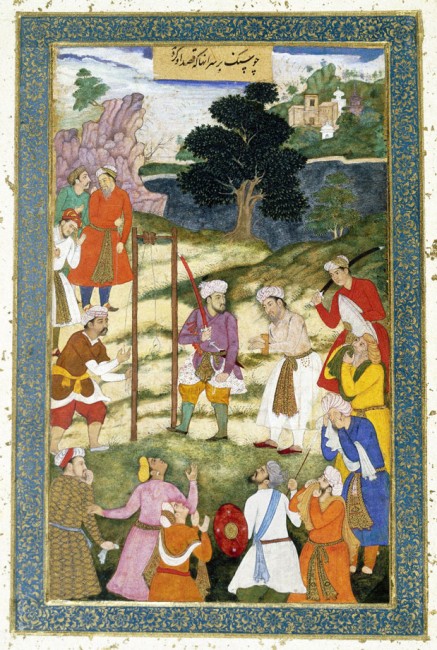Northwestern University Press and the University’s Global Humanities Initiative have selected two inaugural winners of the $5,000 Global Humanities Translation Prize for an in-progress translation of a non-Western or otherwise marginal literary or scholarly text.
Jason Grunebaum and Ulrike Stark are in the process of translating Manzoor Ahtesham’s “The Tale of the Missing Man”from modern Hindi. Carl Ernst is translating and annotating the classical Arabic poems of the mystic Mansur al-Hallaj.
Northwestern University Press will publish both titles in trade editions during their spring 2018 season after completion of the works.
Both books embody the goal of the prize, which is to promote translations that make the greatest contribution to literature and the humanities.
Ahtesham’s novel is a milestone of modern Indo-Muslim literature. It is a deeply meditative exploration of the fracturing of the Indo-Muslim psyche in the wake of the 1947 partition of the subcontinent into India and Pakistan.
Al-Hallaj, executed for heresy in 922 CE, is a pivotal figure in the literary and mystical cultures of the Islamic world, and yet this will be the first comprehensive English edition of the poems attributed to al-Hallaj. Of the 118 poems translated by Ernst, half have never appeared in English before.
The Global Humanities Initiative is supported jointly by the University’s Buffett Institute for Global Studies and the Alice Kaplan Institute for the Humanities and was cofounded in 2015 by Laura Brueck, an associate professor in the department of Asian languages and cultures, and Rajeev Kinra, an associate professor in the department of history at Northwestern.
Brueck described the goal of the prize as “bringing much-needed attention not only to the rich humanistic traditions of the non-West, but also to the relevance of those traditions to the study of the humanities more generally.”
Kinra further contextualized the prize as “placing Northwestern University at the center of a vital international conversation about the continuing role of the humanities in building a more just, tolerant and humane 21st century.”
In conferring the prize, the judges cited Grunebaum and Stark’s English rendering of Ahtesham’s novel as “a fluid translation of one of the most significant voices of contemporary Indian literature.” They praised Ernst’s exceptional translation of al-Hallaj’s work as both “erudite and stylistically masterful.”
The Global Humanities Initiative also recognized three other translations for honorable mention, including Allen Hibbard’s “A Banquet For Seaweed,” a translation of Haider Haider’s Arabic novel “Walīma li ’ashāb al-bahr”; Mui Poopoksakul’s “Sunny Boy,” a translation of Duanwad Pimwana’s Thai novel “Changsamran”; and Arun Nedra Rodrigo’s “The Forest That Took Poison,” a translation of Kuna Kaviyazhakan’s Tamil novel “Nanjunda Kaadu.”
The Global Humanities Translation Prize will release a call for proposals in early summer and accept submissions for the next round of competition until August 1, 2017. For submission instructions, applicants may visit the Global Humanities Initiative website or write to ghi@northwestern.edu.
Founded in 1893, Northwestern University Press publishes works of enduring scholarly and cultural value, extending the university’s mission to a community of readers throughout the world. The Press has an international reputation for publishing translations of scholarly work as well as fiction, drama and poetry.


